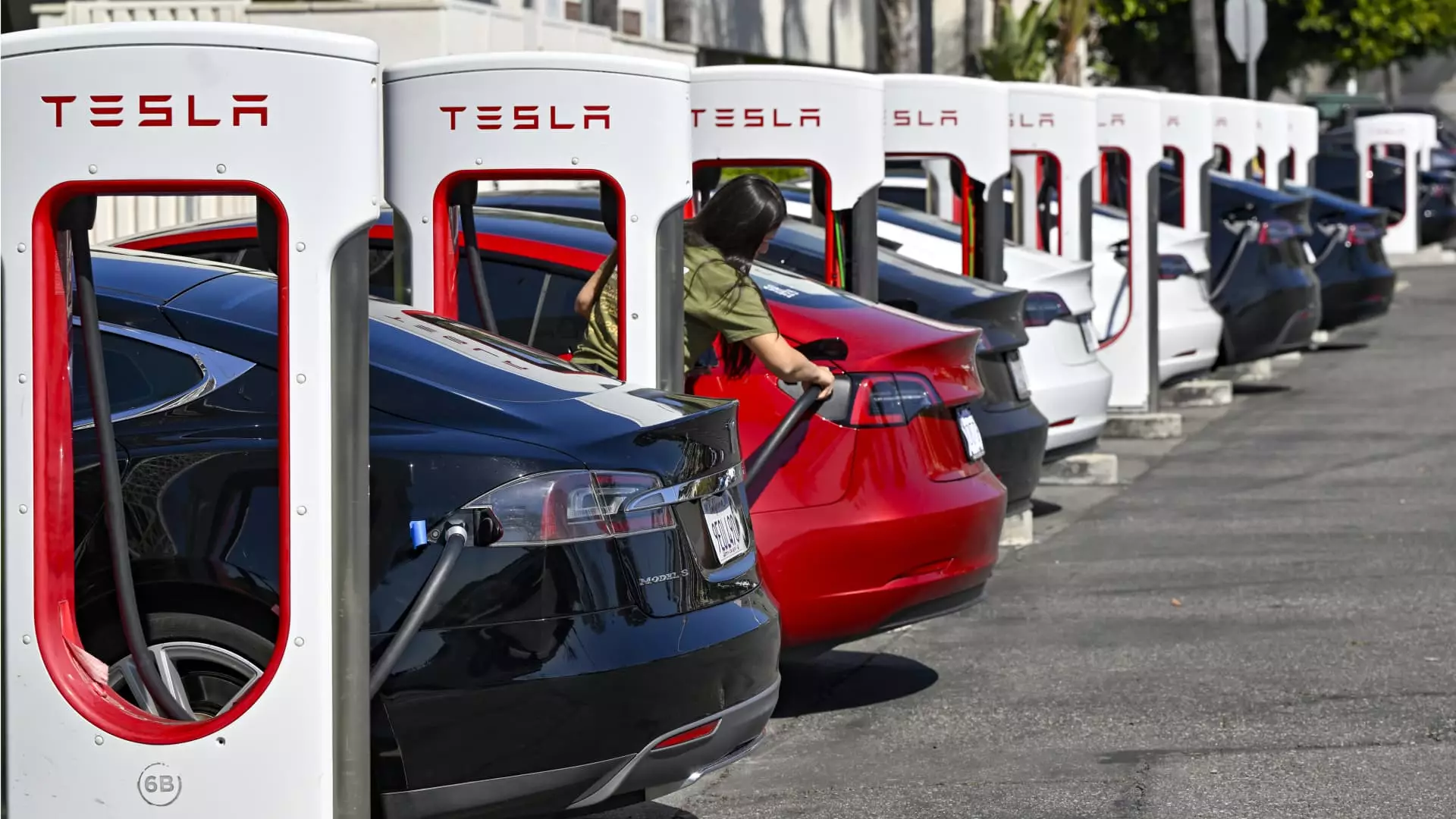The issue of depreciation has long plagued the automotive industry, with cars losing their value as soon as they are driven off the lot. However, the depreciation rates for electric vehicles (EVs) are taking this concept to a whole new level. According to a recent study conducted by iSeeCars.com, the average price of a 1- to 5-year-old used EV in the U.S. fell by a staggering 31.8% over the past 12 months. This significant decrease in value equates to a loss of $14,418, which is a stark contrast to the mere 3.6% drop in the average price of traditional internal combustion engine vehicles of the same age.
The plummeting prices of used EVs may seem like a good deal for potential buyers, but it also has the potential to reduce the demand for new electric vehicles. Karl Brauer, an executive analyst at iSeeCars, highlighted that the rapid depreciation of EVs can deter prospective buyers from investing in these vehicles. The steep decline in value within the first few years of ownership is a crucial factor that many consumers consider when purchasing a new car. As more buyers become aware of the substantial loss in value associated with EVs, they may be less inclined to opt for these vehicles.
Industry experts, such as David Kuo, a stock analyst and co-founder at the Smart Investor, have also raised concerns about the depreciation of EVs. Kuo drew parallels between electric vehicles and consumer electronics like laptops and cell phones, emphasizing their tendency to lose value rapidly. He expressed apprehension about the potential depreciation of EVs, noting that buyers could face significant losses within a short period of time. Representatives from major automakers, including VW and Toyota, have echoed similar sentiments, citing depreciation as a major challenge in promoting the value proposition of electric vehicles.
Kuo further speculated on the issue of technological obsolescence in used EVs, suggesting that outdated software and computing capabilities could render these vehicles incompatible with future updates. This realization could lead buyers to question the initial value of their purchases, adding to the depreciation dilemma. While the depreciation of EVs is a pressing concern, it may be influenced more by market conditions than inherent flaws in the technology itself. The aggressive price cuts by Tesla, the leading EV manufacturer in the U.S., have played a significant role in driving down the value of used electric vehicles. Elon Musk's strategy of reducing prices to stimulate sales has created a ripple effect in the market, making it challenging for other EV manufacturers to maintain competitive pricing.
The ongoing price war between Tesla and Chinese competitors, coupled with an oversupply of EVs relative to demand, has further exacerbated the depreciation issue. Despite Tesla's emphasis on making EVs more affordable to consumers, the relentless cost reductions and oversaturation of the market may hinder the recovery of EV prices in the near future. As the industry grapples with these challenges, it remains to be seen how manufacturers will navigate the complex landscape of electric vehicle adoption in the coming years.

